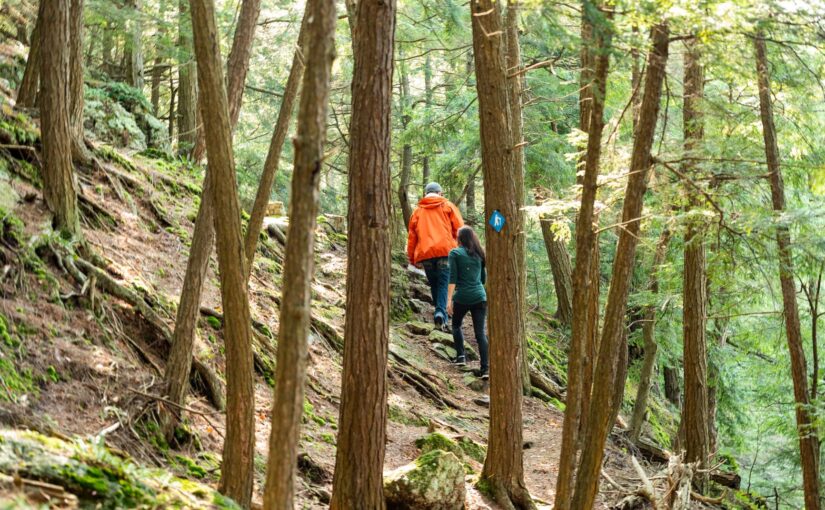We can definitely recommend “losing yourself” in our provincial parks by delighting in the sights and sounds of nature, and living in the moment.
We do not, however, recommend getting actually lost.
Park visitors get lost more often than you’d think. It can be a scary, stressful, and dangerous situation. It can also result in complicated and expensive search-and-rescue operations.
While we know no one sets out to get lost, there are steps you can take to make sure it doesn’t happen to you.
Plan ahead and arrive prepared
Knowing your limits is important. Be realistic about how long a particular route will take you, and leave yourself plenty of time to be off the trail before dark.
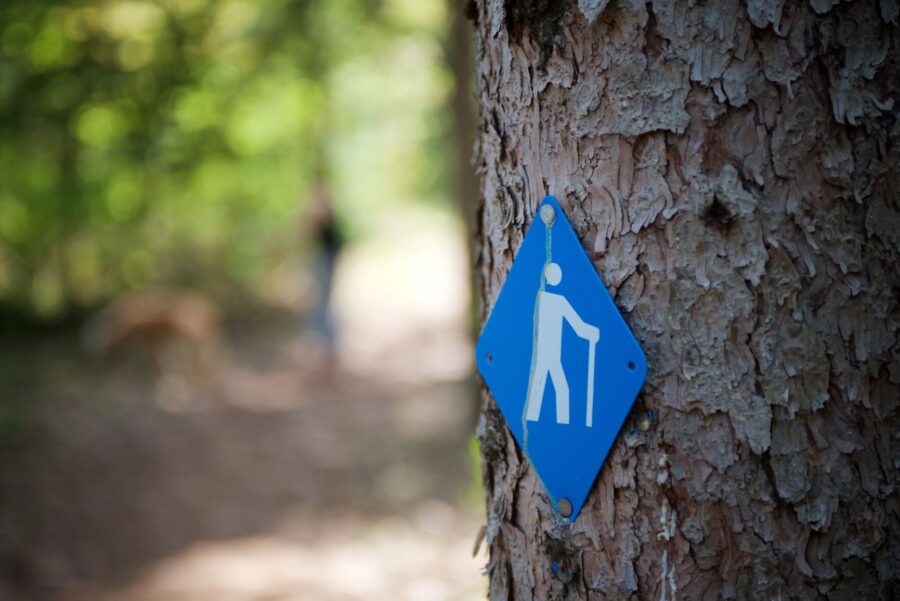
Research the area and/or trail you’re visiting. Study maps and plan your route before you set out.
Don’t venture off marked paths. If you get off course, retrace your steps.
Dress in layers and be ready for changes in weather. Pack extra water and basic survival tools, such as a whistle, flashlight, matches / lighter, high-energy snacks, and a small first aid kit.
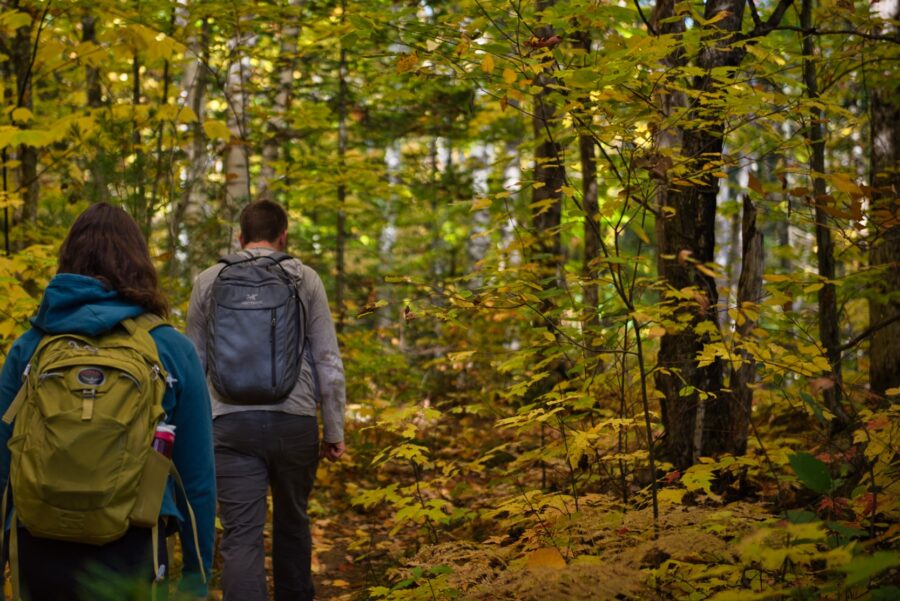
Especially if you’re less experienced, travel with another person whenever possible. If you do go solo, make a trip plan, and share your destination, route, and estimated return time with a friend or family member.
Maps still matter
Mobile phones are super convenient and make our lives easier in lots of ways. But technology can fail. Phones get lost and broken. They run out of batteries, and — especially in the middle of a park — can be out of reach of a cell signal.
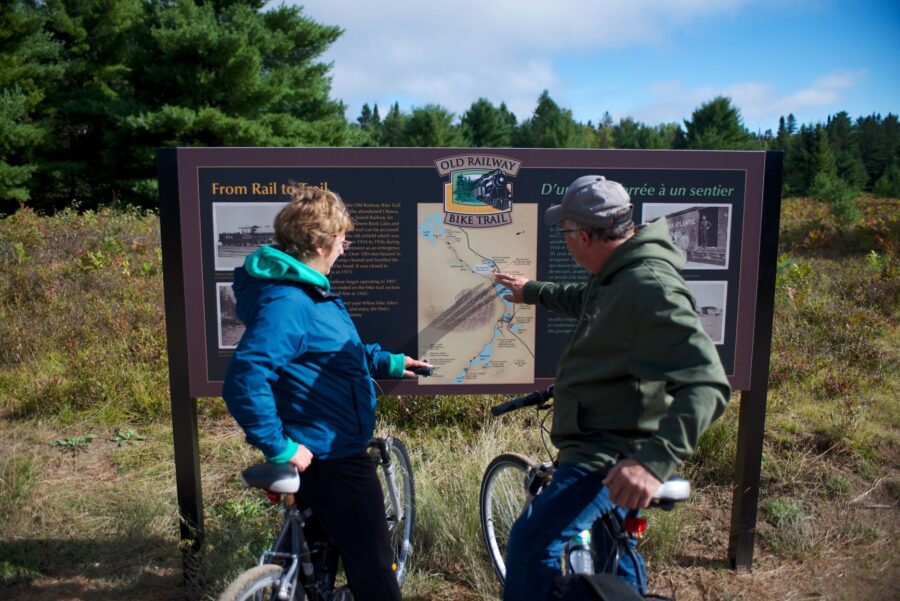
While most of us have a map on our phone, it’s important to not rely solely on your phone for navigation if you are spending time in nature.
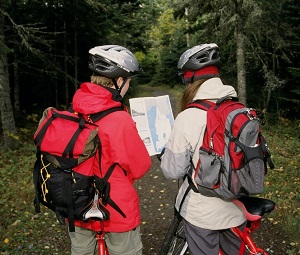
Luckily, your brain can be your back-up plan! Learn how to read a map and use a compass. A map is never going to run out of batteries, and a compass doesn’t rely on a cell signal!
Challenge yourself to learn these old-school (and incredibly valuable) skills this year, before you head out for an outdoor adventure.
There’s an app for that
Once you’ve learned the basics of navigation, you can still embrace technology to guide your outdoor experience.
Apps such as AllTrails can turn your phone into a handy GPS device to help you track your location and make your trips happier and safer. GPS relies on a system of satellites, not cell towers, so even if you are in an area with no cellular service, your phone’s GPS will still work.
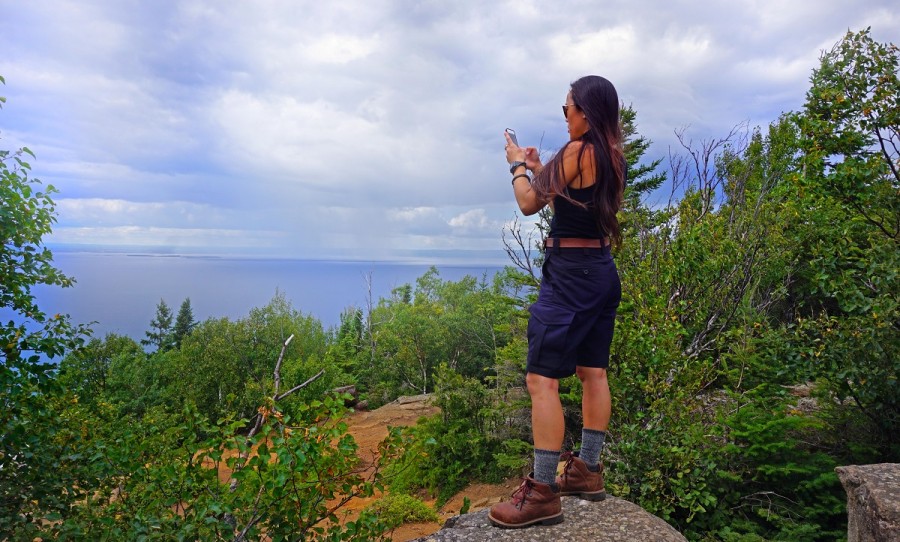
The what3words app uses a combination of words to help pinpoint and share your location via phone call or data connection.
The Search and Rescue Volunteer Association of Canada’s AdventureSmart trip-planning app guides you through the process of preparing and sharing your trip plan to make sure you’re ready for anything (learn more about AdventureSmart here).

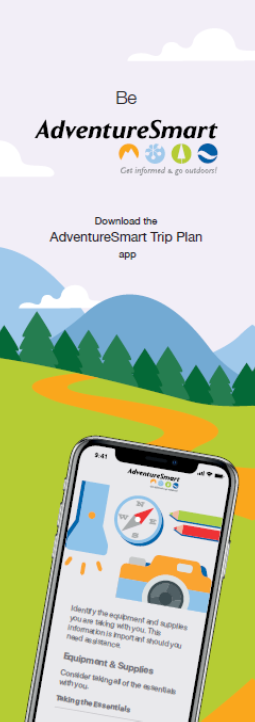
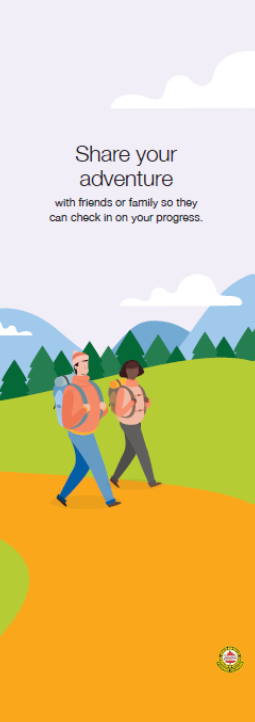
If your phone is part of your navigation toolkit, check your provider’s coverage map. Make sure your phone is fully charged before you head out, take steps to conserve the battery, and consider travelling with a portable solar charger.
Test your GPS app or device before you go and make sure you know how to use it (and don’t forget to have your map and compass as a backup).
You’re lost, now what?
Sometimes the best-laid plans fail. A change in weather, a wrong turn, or an injury can leave you stranded.
Here’s what to do if you get lost:
- Make a call if you are able. Dial 911 and share your location. Use your GPS coordinates or landmarks that you passed to help rescuers pinpoint your location. If your cell service is sketchy, try sending a text message – sometimes they go through when calls will not
- Keep calm. We know it’s easier said than done. Sit for a moment, conserve your energy, and try to collect your thoughts
- Stay put. It’s much easier for rescuers to find you if you stay in one place. Don’t keep wandering – find an open place and wait for help
Let the adventures begin!
Adventures in Ontario Parks are safer, more enjoyable, and happier when you have all the right knowledge and tools.
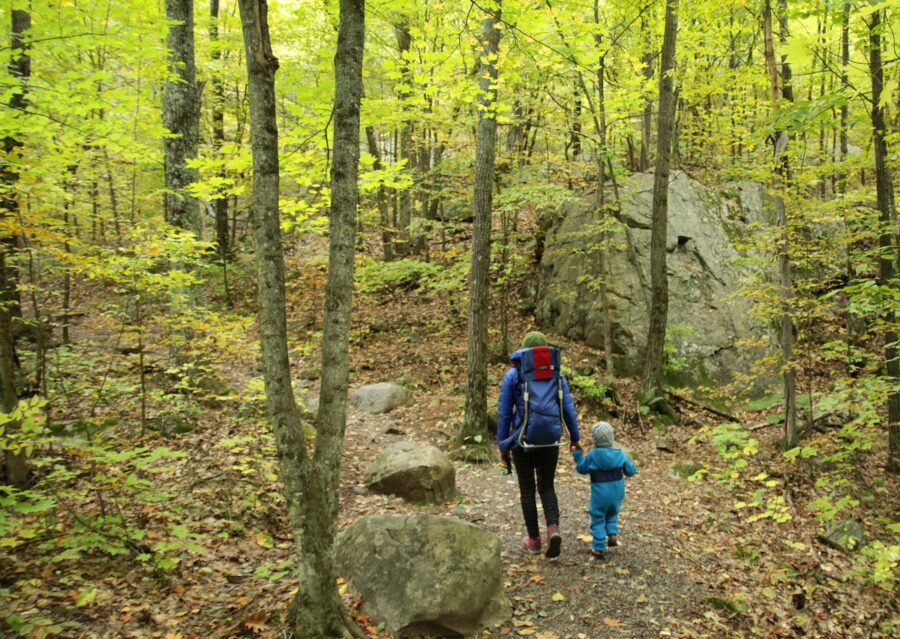
Knowing navigation basics, being prepared, and making a trip plan are great ways to ensure your time in nature is memorable – for all the right reasons!
